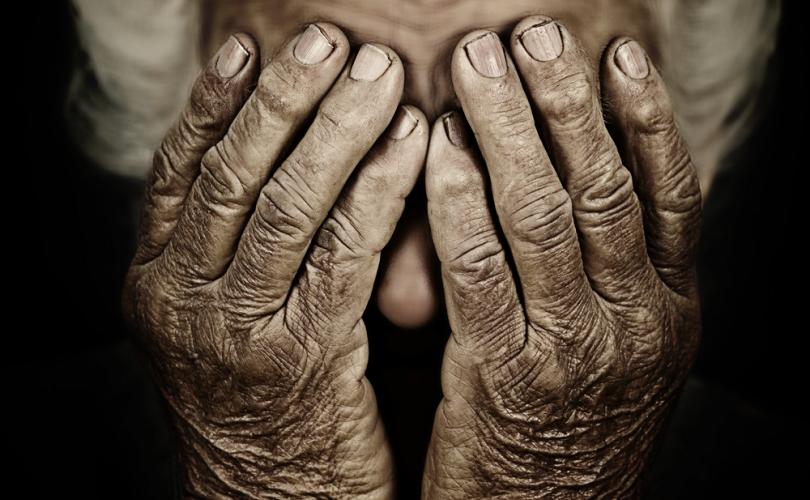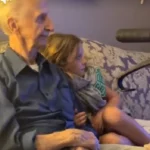Blog Post
I might want to be euthanized too if my children did this to me
By Jonathon Van Maren
This article was first published in 2016. Based on the sharp spike in euthanasia deaths and the expansion of access to suicide both in Canada as well as the Netherlands, I thought it was unfortunately relevant once again.
While euthanasia is being presented across North America as “compassionate” and a good way to end suffering by suicide activists, there is something chilling about the intimacy of these killings. As pro-life activist Gregg Cunningham noted, “Ours is the first generation that, having demanded the right to kill its children through elective abortion, is now demanding the right to kill its parents through doctor-assisted suicide.”
The closest of human relationships are rupturing under the sheer weight of the selfishness and narcissism of the Me Generation. The tagline “dying with dignity” is starting to very much sound like, “Now don’t make a fuss, off with you now.”
Consider this 2014 story in The Daily Mail:
An elderly husband and wife have announced their plans to die in the world’s first ‘couple’ euthanasia – despite neither of them being terminally ill.
Instead the pair fear loneliness if the other one dies first from natural causes.
Identified only by their first names, Francis, 89, and Anne, 86, they have the support of their three adult children who say they would be unable to care for either parent if they became widowed.
The children have even gone so far as to find a practitioner willing to carry out the double killings on the grounds that the couple’s mental anguish constituted the unbearable suffering needed to legally justify euthanasia…
The couple’s daughter has remarked that her parents are talking about their deaths as eagerly as if they were planning a holiday.
John Paul [their son] said the double euthanasia of his parents was the ‘best solution’.
‘If one of them should die, who would remain would be so sad and totally dependent on us,’ he said. ‘It would be impossible for us to come here every day, take care of our father or our mother.’
I wonder why no one considers the fact that the reason some elderly parents may experience “mental anguish” is that they have come to the sickening realization that their grown children would rather find an executioner to dispatch them than take on the responsibility of caring for their parents.
It is for precisely that reason that some scenes in the 2011 HBO euthanasia documentary How To Die In Oregon are so jarring. In one scene, an elderly father explains to the interviewer why he has procured death drugs that he plans to take in case of severe health problems. “I don’t want to be a burden,” he explains while his adult daughter nods approvingly, “It’s the decent thing to do. For once in my life I’ll do something decent.” There was no argument from his daughter.
Think about that for a minute. Would that not be real suffering? To come to the realization that the children you loved with all your heart would rather find someone to kill you than find someone to care for you? Or to care for you themselves? Would it not truly be suffering to realize that those very closest to you, those you loved the very most, would like you to kill yourself, or support your suicide?
Let me take this a step further. Suicidal people often reach out to others, often let someone know about their plans. By telling people they are contemplating suicide, they are letting out one last cry for help—I’m going to kill myself…are you going to stop me? Is it not possible that many elderly parents may be suggesting assisted suicide in the desperate hope that their children will reject such a situation out of hand? That their children will tell them how much they are loved, will promise to come see them, will offer to find them the care that they need? What if the suggestions of some elderly or sick people that suicide is the best option is not so much a suggestion as it is a question: How much do you love me?
Which leads to more questions: Love is not proven until it is tested. As those we love suffer illness and the many afflictions of old age, what is our responsibility towards them? A loved one with Alzheimer’s, for example. It is easy to love someone when they can love us back. But does our responsibility suddenly vanish when that person is not capable of loving us in the same way? Does mental illness, old age, or disease relieve us of our responsibility towards them, eliminate our duty to care for them, or change the fact that we love them? Too often the idea of euthanasia is not about releasing the suffering one from pain. It is about releasing those around him from their responsibility.
Another question: If assisted suicide is a right, do you ever have the responsibility to kill someone? Or rather, do we have the responsibility to protect people from themselves? Many of these questions are simply not surfacing in the debate on suicide. People are simply accepting euthanasia on the grounds that death is a solution to suffering, and are not asking questions that desperately need answers.
Perhaps I’m naïve, but the news stories of children happily arranging the suicide of their parents actually shocked me, and I’m not shocked by much these days. I simply could not fathom responding to fears or depression of parents or grandparents by agreeing to get them killed. In fact, if one of them told me that their life no longer had any meaning and that they wanted to die, I would take that very personally and very seriously. I love them, and it would be my responsibility to dispel their will to die, to convince them that they were precious, and necessary, and I wanted them in my life for as long as was possible.
A final question that I’d like you to think about, long and hard: Would hearing that those who you loved the most agreed that suicide was your best option cause you great suffering?
____________________________
For those interested in learning how to talk about this issue articulately and compassionately, check out A Guide to Discussing Assisted Suicide by myself and my colleague Blaise Alleyne, available here for $10.








